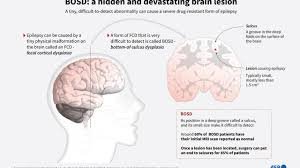
ABUJA, Nigeria – Australian researchers have developed an artificial intelligence tool that can detect minute brain malformations in children with epilepsy, potentially speeding up access to life-changing surgery.
The study, published in Epilepsia, was led by paediatric neurologist, Dr Emma Macdonald-Laurs at the Royal Children’s Hospital in Melbourne.
She said AI can spot lesions the size of a blueberry — often missed on MRI scans.
“Many children are ruled out for surgery because their lesions are too small to be seen. This tool acts like a detective to help us connect the dots,” Macdonald-Laurs explained.
The team trained the system on brain images and combined MRI with PET scans. The AI achieved success rates of 94 per cent and 91 per cent across two groups. Of 17 children studied, 12 underwent surgery, and 11 are now seizure-free.
Epilepsy affects about one in 200 children, with around a third of cases resistant to medication. Structural brain abnormalities, including cortical dysplasia, cause roughly 30 per cent of cases.
Konrad Wagstyl, a biomedical computing expert at King’s College London, praised the work as “really impressive,” noting that AI spotted lesions radiologists missed.
However, he cautioned PET scans are expensive and carry radiation risks, limiting wider adoption.
Macdonald-Laurs said the next step is testing the AI detector in hospitals on undiagnosed patients.
“This is just the beginning, but it could transform epilepsy care,” she added.




